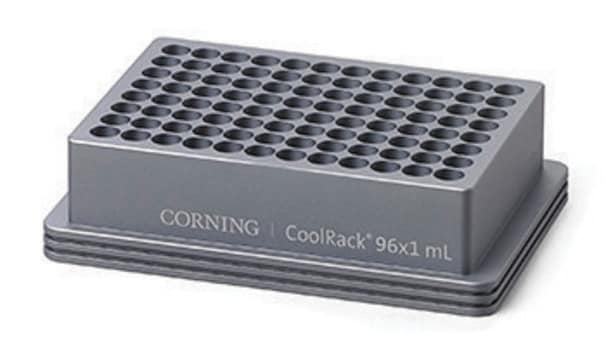HTS027RTA
Ready-to-Assay GnRH Gonadotropin-Releasing Receptor Frozen Cells
Human
Iniciar sesiónpara Ver la Fijación de precios por contrato y de la organización
About This Item
UNSPSC Code:
41106514
eCl@ss:
32011203
NACRES:
NA.84
Productos recomendados
General description
Millipore′s Ready-to-Assay GPCR frozen cells are designed for simple, rapid calcium assays with no requirement for intensive cell culturing. Millipore has optimized the freezing conditions to provide cells with high viability and functionality post-thaw. The user simply thaws the cells and resuspends them in media, dispenses cell suspension into assay plates and, following over night recovery, assays for calcium response.
Gonadotropin-releasing hormone (GnRH), also known as luteinizing hormone-releasing hormone (LHRH), regulates the reproductive hormonal cascade in vertebrates. Upon release from the hypothalamus, GnRH stimulates secretion of luteinizing hormone and follicle-stimulating hormone from the pituitary. In humans, the type I GnRH receptor is a GPCR that is unusual in the lack of a cytoplasmic C-terminal tail. Although some species contain a type II GnRH receptor, the human version of this second receptor appears to contain mutations that render it inactive. GnRH analogs (agonists) are used in low doses in a pulsatile fashion in the treatment of infertility, delayed puberty and cryptorchidism. GnRH agonists at high doses desensitize the receptor, and are used along with antagonists in the treatment of hormone-dependent diseases (Millar et al., 2004). Millipore′s cloned human GnRH-expressing cell line is made in the Chem-1 host, which supports high levels of recombinant GnRH expression on the cell surface for functional detection via the calcium signaling pathway. Thus, the cell line is an ideal tool for screening for agonists, antagonists, and modulators at GnRH.
Gonadotropin-releasing hormone (GnRH), also known as luteinizing hormone-releasing hormone (LHRH), regulates the reproductive hormonal cascade in vertebrates. Upon release from the hypothalamus, GnRH stimulates secretion of luteinizing hormone and follicle-stimulating hormone from the pituitary. In humans, the type I GnRH receptor is a GPCR that is unusual in the lack of a cytoplasmic C-terminal tail. Although some species contain a type II GnRH receptor, the human version of this second receptor appears to contain mutations that render it inactive. GnRH analogs (agonists) are used in low doses in a pulsatile fashion in the treatment of infertility, delayed puberty and cryptorchidism. GnRH agonists at high doses desensitize the receptor, and are used along with antagonists in the treatment of hormone-dependent diseases (Millar et al., 2004). Millipore′s cloned human GnRH-expressing cell line is made in the Chem-1 host, which supports high levels of recombinant GnRH expression on the cell surface for functional detection via the calcium signaling pathway. Thus, the cell line is an ideal tool for screening for agonists, antagonists, and modulators at GnRH.
Cell Line Description
- GPCR Cell Lines
- Host cells: Chem-1
Application
Human GnRH / LHRH GPCR frozen cells for Calcium Flux FLIPR Assays.
Biochem/physiol Actions
- GPCR Class: A
- Protein Target: GnRH/ LHRH
- Target Sub-Family: GnRH
Components
Pack contains 2 vials of mycoplasma-free cells, 1 ml per vial.
Fifty (50) mL of Media Component.
Fifty (50) mL of Media Component.
Disclaimer
This product contains genetically modified organisms (GMO).
Within the EU GMOs are regulated by Directives 2001/18/EC and 2009/41/EC of the European Parliament and of the Council and their national implementation in the member States respectively.
Storage Class
10 - Combustible liquids
wgk_germany
WGK 1
flash_point_f
Not applicable
flash_point_c
Not applicable
Certificados de análisis (COA)
Busque Certificados de análisis (COA) introduciendo el número de lote del producto. Los números de lote se encuentran en la etiqueta del producto después de las palabras «Lot» o «Batch»
¿Ya tiene este producto?
Encuentre la documentación para los productos que ha comprado recientemente en la Biblioteca de documentos.
Nuestro equipo de científicos tiene experiencia en todas las áreas de investigación: Ciencias de la vida, Ciencia de los materiales, Síntesis química, Cromatografía, Analítica y muchas otras.
Póngase en contacto con el Servicio técnico








